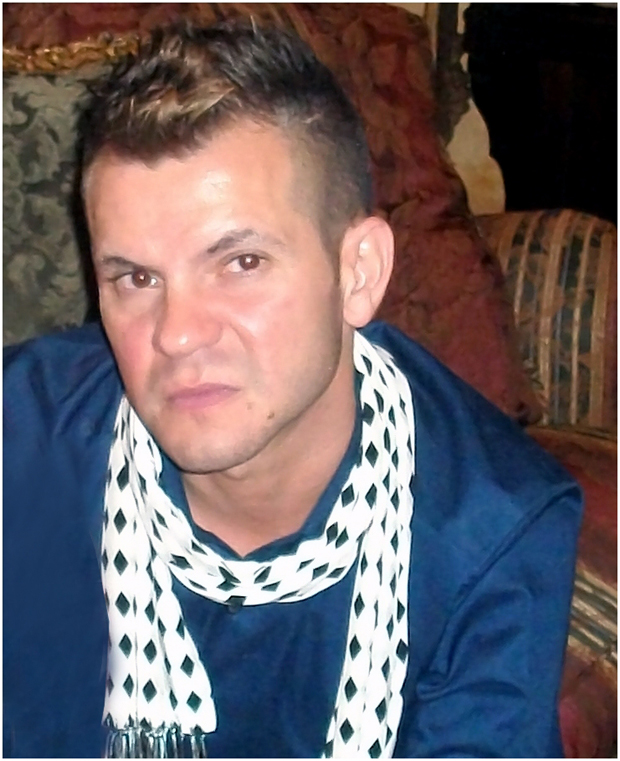Researchers looking for men, trans women who have sex with men to participate in study
DAVID TAFFET | Staff Writer
taffet@dallasvoice.com
UT Southwestern continues recruiting volunteers to participate in a vaccine trial that has been in progress for more than a year.
The Phase II trial is taking place at almost two dozen sites across the country. According to Clinical Research Unit Community Advisory Board member Ernesto Gallegos, Dallas has been among the most successful at recruiting volunteers — but more qualified participants are needed.
Researchers are looking for healthy adult men who test HIV negative, have sex with other men, are between the ages of 18 and 50 and are circumcised.
They are also seeking transgender women who have sex with men.
Volunteers are screened to make sure they qualify for the trial.
Gallegos said participating would be a 12-to-18-month commitment.
He said his involvement began when he volunteered for the study.
He had a partner who was positive.
In his initial screening, he was disqualified because he had antibodies to the adenovirus type 5. That common virus is a cause of respiratory illnesses.
Gallegos said that when he learned he couldn’t participate directly in the study, “I stepped back [and asked], ‘How can I continue to help?’”
That’s when he joined the advisory board as its youngest member.
Volunteers receive a physical exam and, if they are accepted into the project, they are administered the vaccine in four doses.
Participants are asked to keep a written record of any reaction to the vaccine and are required to go to UT Southwestern once every three months for an HIV test, an interview and risk reduction counseling.
A participant cannot contract HIV from the vaccine because it does not contain the virus itself. It is not made from live, weakened or killed HIV or HIV-infected cells.
Phase I of the trial established that the vaccine was safe to give to humans. This phase continues to test safety and dosages.
Researchers will be looking at whether the group getting the vaccine has less chance of contracting the virus and if those who do contract the virus will show smaller amounts of HIV in the blood.
Half the test group will receive the vaccine and half a placebo.
Volunteers will not know whether they received the placebo or the vaccine until after their participation in the study is complete.
Those who are inoculated with the placebo will be eligible to participate in future vaccine studies. Generally those who got the actual vaccine are ineligible for future studies, whether the vaccine proved efficient or not.
For more information or to volunteer, go online to HopeTakesAction.org and fill out a short questionnaire or call 214-590-0610.
This article appeared in the Dallas Voice print edition January 13, 2012.
UPDATE: UT Southwestern Clinical Research Manager Tiana Petersen wrote to update a few items in the story. She said participants would commit 24 months to the study. The Adenovirus type 5 is a common cold virus.
“Phase IIB, is specifically designed to study efficacy,” she wrote. “Researchers will evaluate whether receiving the vaccine injections compared to placebo injections has a significant effect on reducing the number of new HIV infections. Originally, the study was designed to answer questions about whether the vaccine regimen can lower viral load among those who do become HIV-infected, and whether the vaccine regimen continues to be safe.”
Volunteers will not know whether they took the placebo or vaccine until after the study is complete.

















Good day.
I am from the Philippines and was diagnosed HIV positive last January 06, 2012. I would like to know if I can volunteer myself to an ongoing experimental studies for HIV and AIDS. I am looking forward to your response.
Wanted to know if there are any volunteers sites in my area.
Evan: go here for a list of sites: https://www.hopetakesaction.org/locations/index.html
Jacob: please contact AIDS Society of the Philippines for information on your treatment options. https://www.aidsphil.org
HI,
I am an Indian.
Last week I was diagnosed as HIV positive. Can any one help me to participate as a volunteer in this phase I.
Looking forward..
Thank you
Arjun: Participants in this trial must be HIV negative because the vaccine is to prevent, not cure, infection.
However, there are drug trials going on around Dallas. Contact AIDS Arms about their trials. Their number is 214-521-5191. Another place to try is North Texas Infectious Disease Consultants. Ask for Bryan. The office number is 214-823-2533.
If you are not in Dallas, contact your local HIV service provider and tell them you have been diagnosed HIV positive and would like to participate in any drug trials taking place locally.
HI,
I am an Indian.
I am HIV negative. Can any one help me to participate as a volunteer in this phase I.
Looking forward.. My mobile number is +91 9836339121 .
Thank you